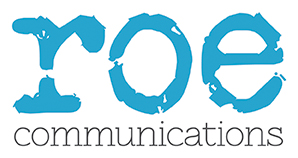Faculty research is one of the key outputs from business schools and something that marketing communications teams are often asked to support.
Getting it right raises awareness of your academic strengths and can:
- Lead to new industry partnerships
- Help you get noticed by policymakers
- Support bids for funding
- Encourage donations
- Engage your alumni network
- Help potential students and executive education clients with their decision-making process
- Show how you are taking a lead in solving wider economic and business challenges
- Feed into and support accreditations and evaluation systems such as REF
- Differentiate you amongst your peers
- Drive traffic to your website and increase social media engagement
Without it, your school will have a lower profile, leading to less engagement from your target audiences and opportunities for your school.
But getting press coverage for your academic research is not always easy. The nature of academic writing does not lend itself naturally to mainstream media. What is more, as some research projects focus on proving theories that already exist, it is not always easy to determine what is new and relevant for outside audiences.
The good news is that there is a way to get around these challenges and to get the coverage that you want. Here are our 10 secrets to securing mainstream press coverage for business school faculty research.
- Understand your target audience – who do you want to reach with this? Be specific – is this about reaching CEOs or CMOs, or venture founders for instance? Do you know what their present problems are? Without knowing this, your PR campaign could add up to wasted effort.
- Develop clear objectives – what do you want them to think, feel or do as a result of seeing your press coverage? Having a clear call-to-action leads to opportunities to engage with your audiences and enables you to report back on results.
- Spend time considering the most newsworthy angles – don’t assume that because it’s ‘new’ it will be of interest to a journalist. Put yourself in the shoes of their reader – why should they care about your story? ‘Why’ and ‘how’ are powerful questions to ask.
- Link it to the current news agenda – journalists are driven by current news events, no matter what their specialism is. Can you link your research in? How is it adding to public discourse on the subject? Yes, COVID-19 is still the dominant theme in the media, but journalists are open to other stories as they are aware that their readers are getting pandemic fatigue.
- Be selective with your media targets. Just putting a press release out and hoping for the best may not be a good use of your time. It might be better to target a few, high-impact outlets with tailored pitches for maximum effect.
- Prepare well for interviews. No matter how experienced they are with the media, it’s always a good idea to have a dry run with your spokespeople before interviews. This avoids your faculty being misquoted, not getting your messages across, or simply not being quoted.
- Keep it simple, stupid! It’s all in the language – in pitches or press releases, cut out jargon, research strong headlines and snappy quotes.
- Make it user-friendly. Do you have a checklist or template, for example, that they could use back at their office? Developing helpful takeaways takes it out of the theoretical realm into something more useful.
- Strong imagery – research and books can be difficult for people to imagine – graphics, powerful photography and real-life picture case studies can be the difference between your story being picked up or not.
- Cross-promotion – in our digital world, you need to make the most of all your channels – whether that’s the news page on your website or social media feeds. Also engage with supporters and alumni contacts to maximise social media sharing. This will inevitably boost results and can even lead to opportunities with other journalists.

